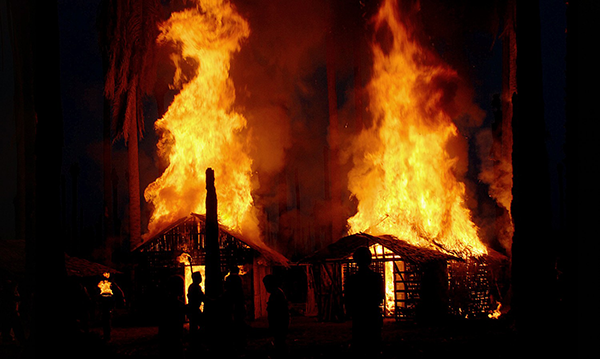I wrote about Terrence Malick, To the Wonder, the Song of Songs, medieval Christian theology, etc., here.
Memories of Murder

See Joshua Oppenheimer's The Act of Killing, by all means--in the director's cut, if possible. The word singular is decidedly over-used when discussing movies, yet there's no real point of comparison in cinema or any other artistic medium for the experience of watching Oppenheimer's film. One could perhaps posit certain analogies between this film and, say, Shoah or Salo or La Commune (Paris, 1871), particularly insofar as The Act of Killing is so vitally filmic and highlights the unique potential of cinema as a medium for engaging with historical memory. But Oppenheimer's film deserves to be considered as a truly sui generis work, staggeringly powerful and indelible. It's also the rare movie-about-movies that never feels gratuitously reflexive or designed exclusively for the small club of the well-versed. Rather, this is an ostensible meta-movie that's finally about nothing less than man's capacity for evil and the labyrinthine contours of the human conscience.
(As a primer before seeing the film, I highly recommend picking up a copy of John Roosa's excellent book, Pretext for Mass Murder: The September 30th Movement and Suharto's Coup d'Etat in Indonesia, especially since The Act of Killing is relatively light on historical context, aside from a few expository intertitles.)
See Joshua Oppenheimer's The Act of Killing, by all means--in the director's cut, if possible. The word singular is decidedly over-used when discussing movies, yet there's no real point of comparison in cinema or any other artistic medium for the experience of watching Oppenheimer's film. One could perhaps posit certain analogies between this film and, say, Shoah or Salo or La Commune (Paris, 1871), particularly insofar as The Act of Killing is so vitally filmic and highlights the unique potential of cinema as a medium for engaging with historical memory. But Oppenheimer's film deserves to be considered as a truly sui generis work, staggeringly powerful and indelible. It's also the rare movie-about-movies that never feels gratuitously reflexive or designed exclusively for the small club of the well-versed. Rather, this is an ostensible meta-movie that's finally about nothing less than man's capacity for evil and the labyrinthine contours of the human conscience.
(As a primer before seeing the film, I highly recommend picking up a copy of John Roosa's excellent book, Pretext for Mass Murder: The September 30th Movement and Suharto's Coup d'Etat in Indonesia, especially since The Act of Killing is relatively light on historical context, aside from a few expository intertitles.)
Subscribe to:
Posts (Atom)
